Applied Biodiversity - Investigate, Protect, Valorise
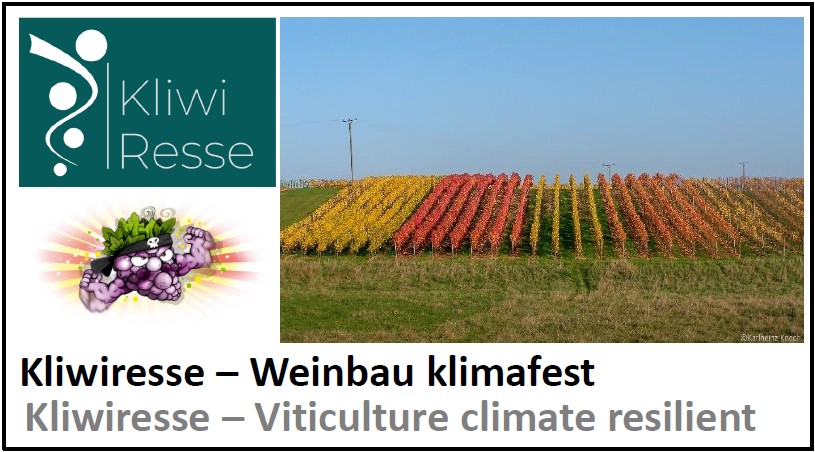 |
KliwiresseClimate Change has also arrived at the Upper Rhine. This turns difficult even for viticulture. Actually, grapevines with their deep roots are well prepared for summer. The new dimensions of heat and drought shift even grapevine into difficulties. Our project Kliwiresse will contribute to adjust viticulture in the region to the challenges of climate change. Here, we go novel paths: We ask the ancestor of our grapevines, the almost extinct European Wild Grapevein for help. Here, we search for genes that help to cope with climate stress, in order to unfold them for breeding. Here, cutting technology is used. Our goal are climate resilient (KliWi) grapevine varieties. These should continue the success story of the fungus resilient (PiWi) varieties that has begun more than 150 years ago in our region as well. At the same time, we want to develop a evidence-based readout system for current varieties to predict climate resilience, to enable wine growers to select the proper variety when they establish new vineyards. |
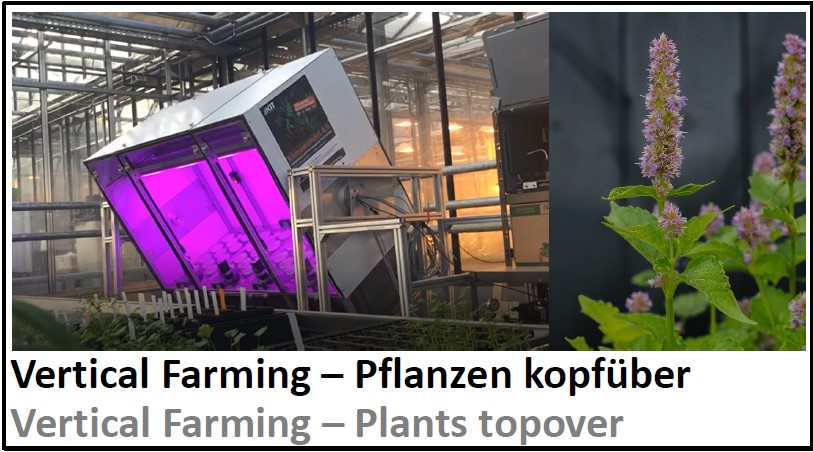 |
Vertical FarmingIn cooperation with Vertical Farm Tech in Waldbronn we investigate the possibility to stimulate the accumulation of valuable plant compounds by gravity stimulation, in order to increase the quality of pharmaceutical plant products. The company has developed a first prototype that has been installed in our greenhouse. Using Mint as case, we test out, what happens. Here, we know already quite a bit about the molecular mechanisms behind Mint scent. In the long term, we want to enable by this new technology the cultivation of rare medicinal plants such as Arnica, thus avoiding the need to collect those endangered species in the wild. more... |
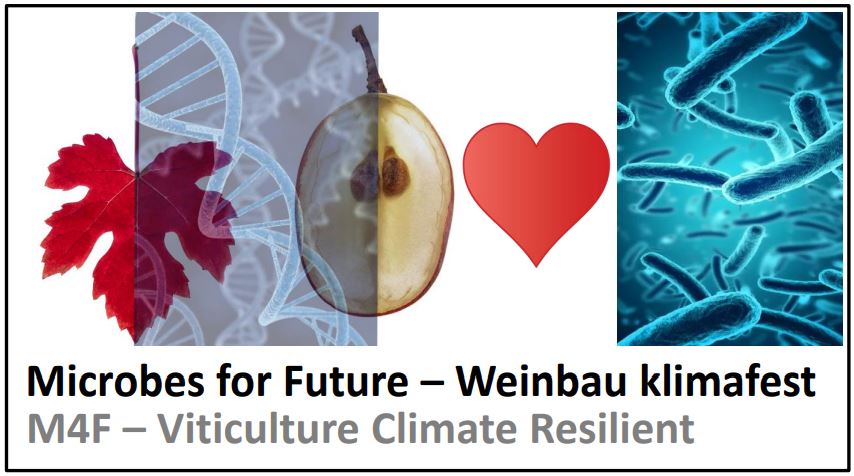 |
Microbes for Future (M4F)Climate Change brings new diseases, where hitherto healthy grapevines collapse within a week (Esca & Co) - similar phenomena are observed in city trees. We could show that this comes with a perturbed chemical communication between fungi and plants. Can we influence the microbes in the rhizosphere such that the communication runs well even during a dry and hot summer, such that the grapevines are protected from the outbreak of Esca & Co? A cooperation with the Kaster Lab at the Campus Nord, funded by the Strategy Fond of the Presidium. more... |
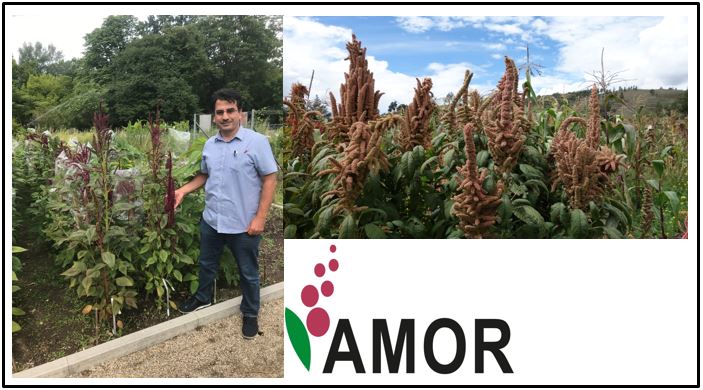 |
Biodiversität für eine bessere ErnährungDer Amarant (Fuchsschwanz) war das Superfood der Inka. In einem gemeinsamen Projekt mit der Universität Hohenheim und der Universität Cusco in Peru, aber auch mit Partnern aus der Nahrungsmittelindustrie geht es um wertvolle Omega-3-Fettsäuren - eine vegane Alternative für die vegane Ernährung? Unsere Amaranth-Sammlung hilft uns dabei, dies zu entwickeln. mehr... |
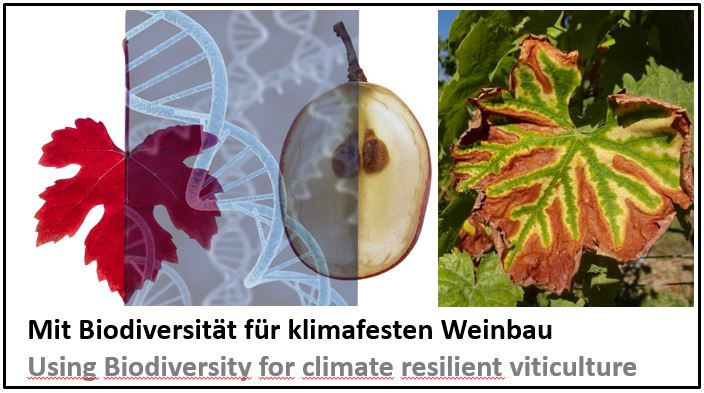 |
Fit für den KlimawandelAus einer Arche Noah zum Schutz der vom Aussterben bedrohten Europäischen Wildrebe (die Stamm-Mutter unserer Kulturrebe) entstand eine wertvolle genetische Ressource. Unsere Sammlung beherbergt wertvolle Immunitätsgene für den nachhaltigen Weinbau der Zukunft.mehr...
|
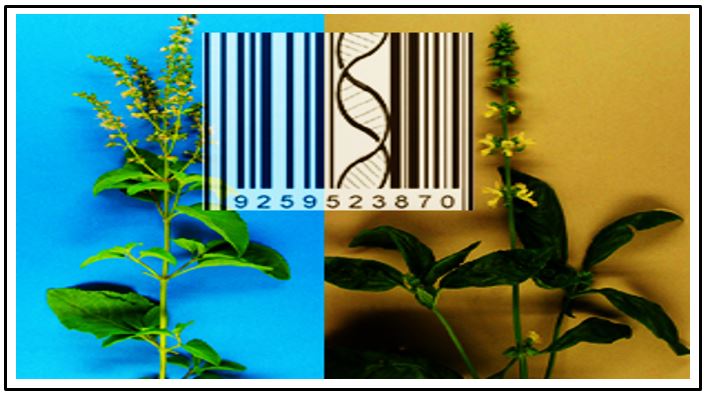 |
Alles echt? Für mehr Verbraucherschutz in Zeiten der GlobalisierungGlobalisierung und Verbraucherschutz stehen oft auf Kriegsfuß. Unsere Belegpflanzen im Verbund mit unserer Gendatenbank helfen uns dabei, Licht ins Dunkle zu bringen. Die Qualität unserer Belegsammlung hat sich herumgesprochen, immer mehr Behörden und Firmen fragen bei uns nach. mehr...
|
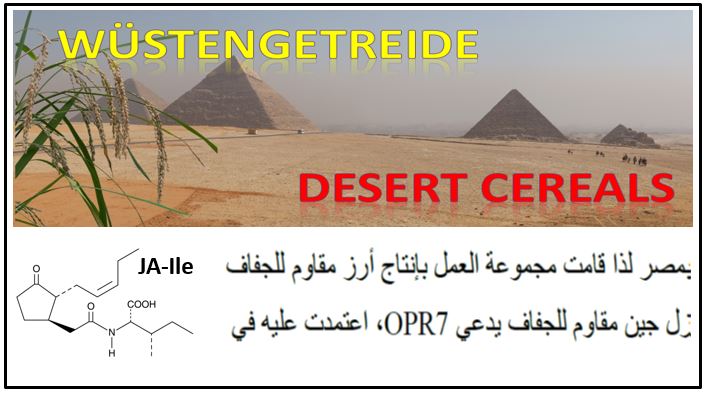 |
Biodiversität hilft gegen KlimawandelIn einem deutsch-ägyptischen Projekt suchen wir nach Genen bei Reis und Weizen, um Getreide gegen Dürre wappnen zu können. Zentral hierfür das pflanzliche Stresshormon Jasmonsäure (JA-Ile) und der wichtige Schalter OPR7.
|
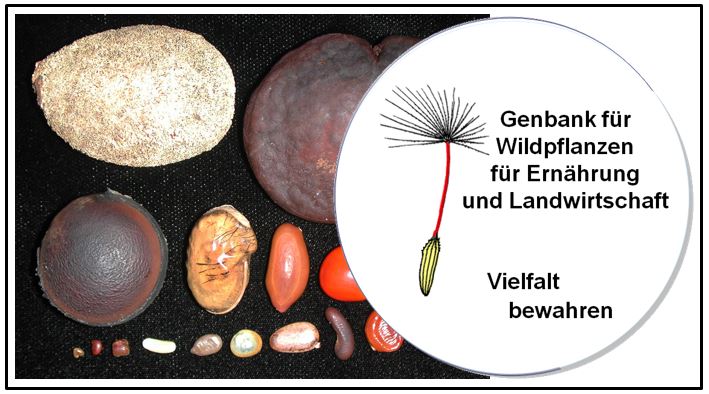 |
Genbank SüdwestUnsere Genbank für Wildpflanzen mit Nutzungspotential für Ernährung und Landwirtschaft birgt weitere Schätze - momentan im Brennpunkt: Wilde Erdbeeren. mehr... |
